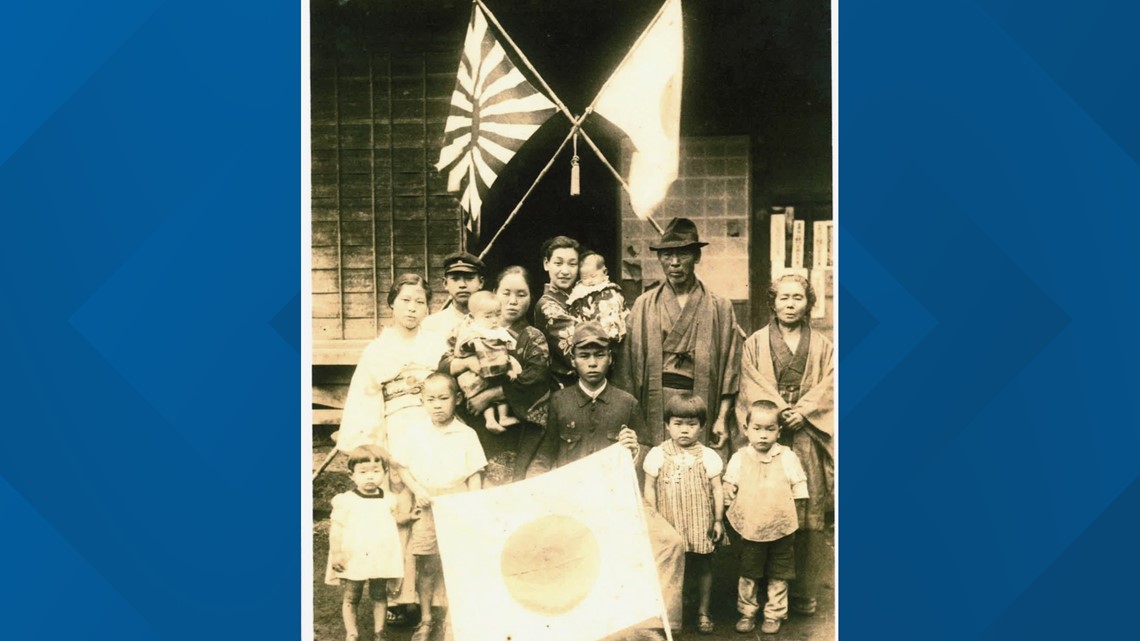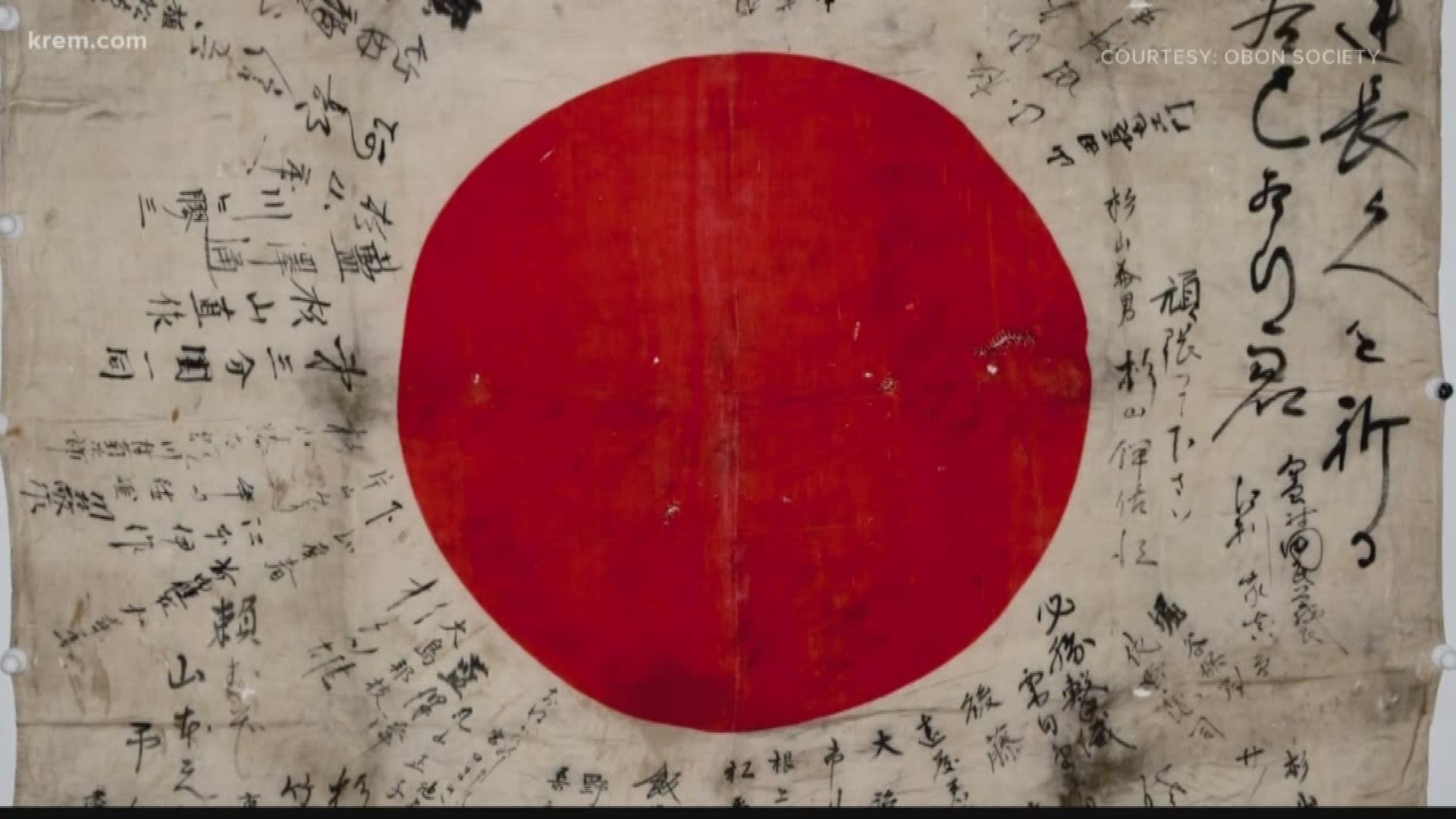Editor's note: Above video published in April 2020 is a report on the return of one of the flags to another Japanese family
ST. MARIES, Idaho – Yet another Japanese family tied to a historical World War II battlefield flag that had been stored in Idaho for years has been located, according to a St. Maries American Legion post.
As previously reported by KREM and the St. Maries Gazette Record, the American Legion post in Benewah County spearheaded an effort earlier this year to return five Japanese flags carried by fallen Japanese soldiers during the war. The flags were collected during World War II by an American soldier and were kept in storage for decades in the US before eventually being inherited by the soldier's daughter-in-law in North Idaho.
Scholars say the small Japanese flags, also known as "good luck flags," were traditionally signed by family members and given to Japanese soldiers as they headed into war.
The American Legion post earlier this year gifted the five flags to the Obon Society, an Oregon-based non-profit that works to reunite "good luck flags" with family members and communities in Japan tied to the soldiers who originally carried them.
The Obon Society says that a second family connected to one of the Benewah County flags has since been located. This follows news in April of another family in Japan being identified in relation to another flag.
The nonprofit says that the most recent Japanese soldier they've identified was named Takeji Kubota, who died in August 1945 in the Philippines. The Obon Society said a living nephew of Kubota's had been located in Japan and that the family was "eager" to receive the flag.
The Obon Society had previously said they were working to find family members for the three remaining North Idaho flags.
In April, the nonprofit announced that they had located the son of one of the soldiers tied to the flags. The discovery marked Obon Society's first family connection to the flags that had been in storage in Benewah County.
The group also recently shared a photo of the son, Noboru Horiya, holding the flag that belonged to his late father who died in the war. An additional family photo taken during the war showed Horiya as an infant being held by his mother while his father, then 26 years old, posed with the flag.


"When I saw lots of name and words of encouragement written on the flag by my father’s former teacher, neighbors, friends, relatives, I felt like I was back in a few decades ago," Horiya, 77, wrote in a letter to the St. Maries American Legion post that was subsequently translated by the Obon Society.
"I’d like to express my respect for your spirit aspiring to world peace and sincerely appreciate your efforts to return the flag. I promise I will inherit this flag to future generation as the keepsake of my father died in war," Horiya wrote.
Jim Shubert, the commander of the St. Maries post who helped facilitate the transport of the North Idaho flags to the Obon Society, told KREM that his hope was that additional veterans and their families would potentially be inspired to return more World War II artifacts to Japanese families.
"When I read the letter from Noboru Horiya, it put a lump in my throat and brought tears to my eyes," Shubert said in an email to KREM. "It reaffirmed we did the right thing."

